1508 – English seaman Francis Drake returned to Plymouth, England, on the Golden Hind, becoming the first British navigator to sail the earth. The journey lasted three years.
1820 – Pioneering frontiersman Daniel Boone died quietly in his sleep at his son’s home near present-day Defiance, Missouri. He was 86.
Made a legend in his own time by John Filson’s Boone Autobiography and Lord Byron’s depiction of him as the quintessential frontiersman in the book Don Juan, Boone became a symbol of the western pioneering spirit for many Americans.

1908 – An ad for the Edison Phonograph appeared in The Saturday Evening Post. The phonograph offered buyers wax cylinders recorded by the Democratic candidate, William Jennings Bryan, and the Republican candidate, William Howard Taft.
The two-minute duration of these records forced an eager Bryan and a reluctant Taft to excerpt their nuanced speeches and get to the point. Thus began the 20th century’s march to the sound bite … and the redefinition of political communications for all time.
1938 – Adolf Hitler issued an ultimatum to Czechoslovakia, demanding that Germans living in the Sudetenland section of Czechoslovakia be reunited with their homeland. Hitler denounced Czechoslovakia as being a fraudulent state that was in violation of international law’s emphasis of national self-determination. In that speech, Hitler gave Czechoslovakia a deadline of September 28 to cede the Sudetenland to Germany or face war.
1944 – Operation Market-Garden, a plan to seize bridges in the Dutch town of Arnhem, failed, as thousands of British and Polish troops were killed, wounded, or taken prisoner. British Gen. Bernard Montgomery conceived an operation to take control of bridges that crossed the Rhine River, from the Netherlands into Germany, as a strategy to make “a powerful full-blooded thrust to the heart of Germany.”
The Germans quickly destroyed the railroad bridge and took control of the southern end of the road bridge. The Allies struggled to control the northern end of the road bridge, but soon lost it to the superior German forces. The only thing left was retreat-back behind Allied lines. But few made it. Of more than 10,000 British and Polish troops engaged at Arnhem, only 2,900 escaped.
1945 – Lt. Col. Peter Dewey, a U.S. Army officer with the Office of Strategic Services in Vietnam, was shot and killed in Saigon. Dewey was the head of a seven-man team sent to Vietnam to search for missing American pilots and to gather information on the situation in the country after the surrender of the Japanese. He would prove to be the first of nearly 59,000 Americans killed in Vietnam.
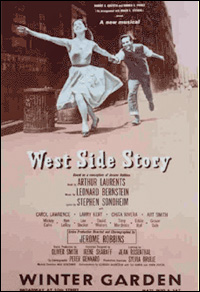
1957 – West Side Story, composed by Leonard Bernstein, opened at the Winter Garden Theatre on Broadway. For the groundbreaking musical, Bernstein provided a propulsive and rhapsodic score that many celebrate as his greatest achievement as a composer.
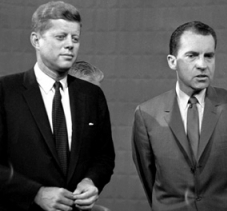
1960 – For the first time in U.S. history, a debate between major party presidential candidates was shown on television. The presidential hopefuls, John F. Kennedy, a Democratic senator of Massachusetts, and Richard M. Nixon, the vice president of the United States, met for the first of four televised debates.
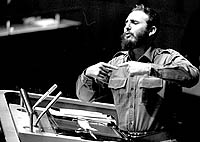
1960 – Fidel Castro delivered a 4 ½ hour speech to the U.N. General Assembly in New York City. If you would like a transcript, I can point you in the right direction.
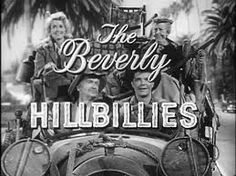
1962 – The Beverly Hillbillies premiered on CBS. The series ran for nine years.
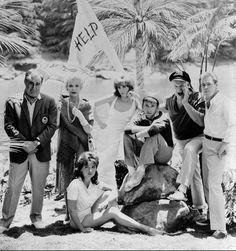
1964 – Gilligan’s Island premiered on CBS. While it felt like the series went on forever, it only lasted three years … but here are the questions of the day…
1/ If the survivors had set out to take a “three-hour tour,” why did they have so many changes in wardrobe?
2 / The castaways built framed huts with thatched grass sides and roofs, along with bamboo closets strong enough to withstand hurricane-force winds and rain, but they couldn’t repair a hole in the side of the damn ship?
1971 – Baltimore Orioles pitcher Jim Palmer won his 20th game of the year, becoming the fourth Orioles pitcher to win 20 games in the 1971 season. That made the 1971 Orioles pitching staff the first since that of the 1920 Chicago White Sox to field four 20-game winners.
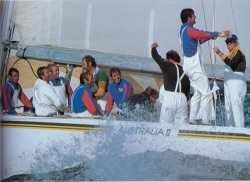
1983 – The longest winning streak in sports – 132 years – was broken. It was the America’s Cup race and the United States team expected to maintain their title; one they were defending for the 25th time. Challenger Australia II won.

1984 – President Ronald Regan vetoed HR 4868, which would have imposed a series of sanctions, such as barring importation of South African coal, steel and agricultural products and ending landing rights in the United States for the government-owned South African Airways. The measure also threatened future sanctions if the Pretoria government failed to move to end the “apartheid” system of racial segregation.
The U.S. House and Senate easily overrode Reagan’s veto. Reagan readily accepted the congressional action and promised to implement the law. In a statement issued by the White House after the vote, Reagan said the debate between himself and Congress “was not whether to oppose apartheid but, instead, how best to oppose it and how best to bring freedom to that troubled country.” Nevertheless, Reagan insisted he had been correct in opposing sanctions because “they hurt the very people they are intended to help.”
1986 – Antonin Scalia was sworn in as a U.S. Supreme Court Justice.

1991 – A group of scientists, four men and four women, began a two-year stay inside Biosphere 2, a sealed structure in Oracle, AZ. They had planned to have no contact with the outside world; to grow their own food and live peacefully together as future pioneers in a harsh and alien world.
Unfortunately, the outside world had to intervene a few times; to get rid of an ant invasion, to pump in oxygen, to tend to a health emergencies, to bring in forgotten necessities like makeup. The scientific team managed to last out the term, but they were half-crazy and half-starved when U.S. marshals led them out two years later.
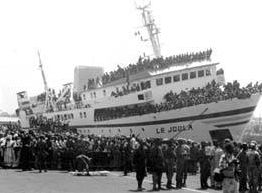
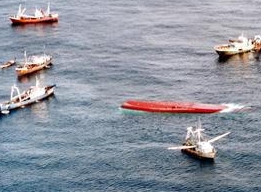
2002 – MV Le Joola , a ferry from Senegal, capsized off the coast of Gambia. Although the ship was designed to carry a maximum of 580 passengers and crew, an estimated 1,863 passengers and crew of 44 are believed to have been on board
Only 64 were rescued, making it the second-worst non-military maritime disaster in history.
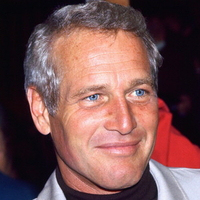
2008 – Paul Newman, one of the leading movie stars of the 20th century, died at the age of 83 from cancer at his home in Westport, Connecticut. In a career spanning more than five decades, Newman made over 65 movies, including the classics Cool Hand Luke, Butch Cassidy and The Sundance Kid, The Sting and The Verdict. As reported in The New York Times, Newman’s talent as an actor was drawn from his “physical grace, unassuming intelligence and good humor that made it all seem effortless.”

2010 – Actress Gloria Stuart (best known for her film role as the 100-year-old Old Rose in the Academy Award-winning film Titanic) died of natural causes at the age of 100. She was nominated for an Academy Award as Best Supporting Actress for her performance in Titanic.
Compiled by Ray Lemire ©2014 RayLemire.com. All Rights Reserved.
You may not, under any circumstances, reproduce, record, publish, republish, post, transmit, publicly display, publicly exhibit or distribute any articles or photographs on RayLemire.com without obtaining the express written consent of the Operator.